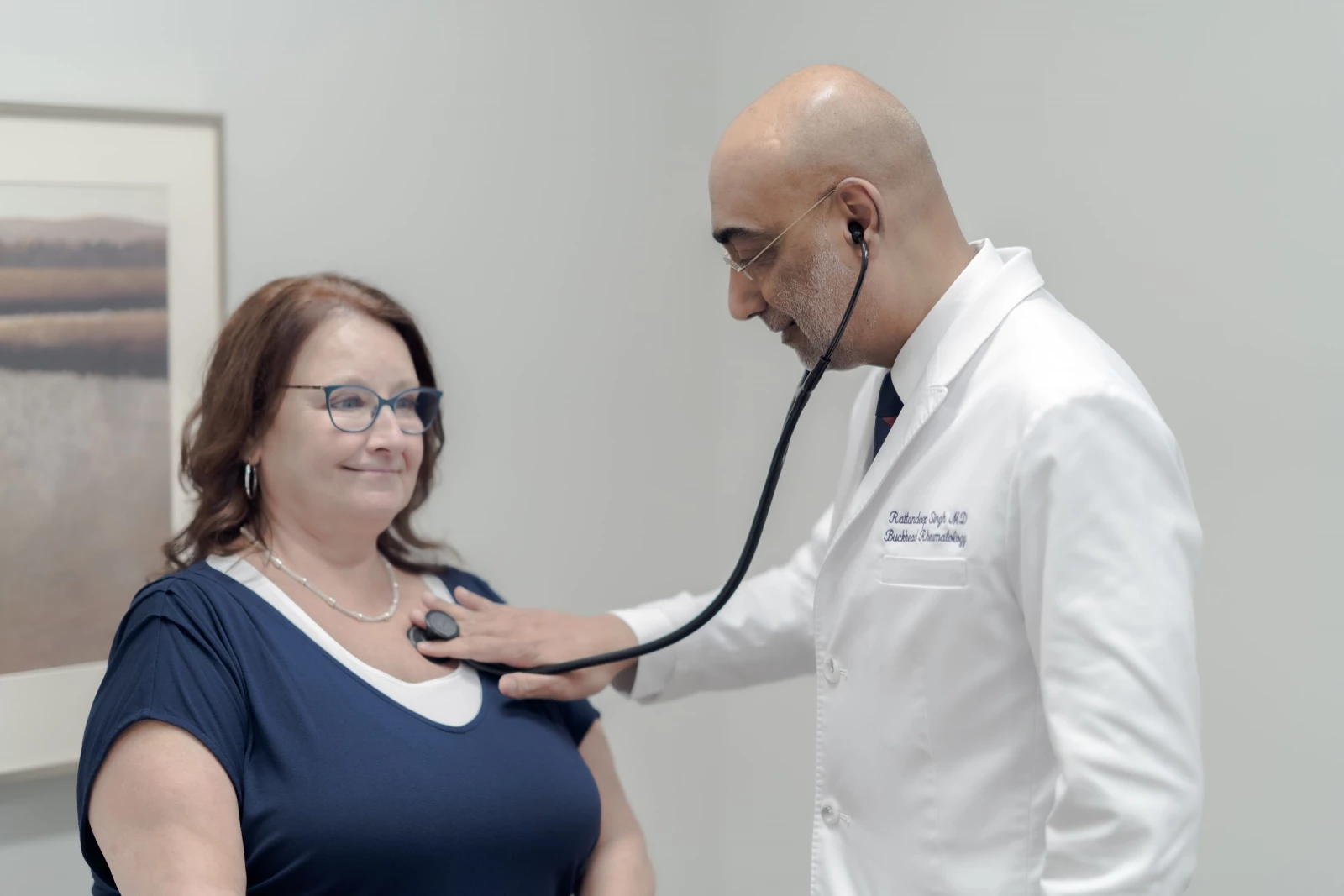Ankylosing Spondylitis (AS) is a chronic, inflammatory autoimmune disease that primarily affects the spine, causing pain, stiffness, and in some cases, the fusion of spinal bones. .
It is a type of spondyloarthritis, which refers to a group of inflammatory arthritis diseases that primarily impact the axial skeleton (the spine and pelvis). AS can also affect other joints and organs, including the hips, shoulders, and eyes.

You may have symptoms of pain and inflammation in your:
- Spine
- Shoulders
- Pelvis
- Eyes
- Hips
What Are the Signs/Symptoms?
-
Back Pain and Stiffness: Pain is often felt in the lower back or sacroiliac joints (where the spine meets the pelvis), especially in the morning or after long periods of inactivity. The pain typically improves with exercise.
-
Fatigue: People with AS often experience chronic fatigue, which can be debilitating and interfere with daily activities.
-
Postural Changes: As the condition progresses, some individuals may develop a "stooped" posture due to the fusion of spinal joints.
-
Peripheral Joint Involvement: Swelling, pain, and stiffness in joints other than the spine, such as the hips, knees, and shoulders, can occur.
-
Eye Problems: Inflammation of the eyes (iritis or uveitis) is common and can lead to pain, redness, and sensitivity to light.
-
Other Symptoms: AS can also cause complications like heart or lung problems, including aortic valve insufficiency, pulmonary fibrosis, and problems with the digestive system such as inflammatory bowel disease (IBD).
What Are Common Treatments?
While there is no cure for AS, several treatments can help manage symptoms and slow the progression of the disease. The treatment plan is tailored to the individual's needs and may include:
-
Nonsteroidal Anti-Inflammatory Drugs (NSAIDs): NSAIDs such as ibuprofen and naproxen are often the first line of treatment to reduce inflammation and manage pain.
-
Disease-Modifying Anti-Rheumatic Drugs (DMARDs): For people with more severe symptoms or joint involvement, DMARDs such as sulfasalazine or methotrexate may be prescribed.
-
Biologic Agents: Tumor necrosis factor inhibitors (TNF inhibitors) and interleukin-17 inhibitors (IL-17 inhibitors) are powerful biologic treatments that can help reduce inflammation and slow disease progression. These are often used when NSAIDs and DMARDs are not effective.
-
Physical Therapy: Exercise and physical therapy are crucial for maintaining mobility, flexibility, and posture. Regular exercise helps to strengthen the muscles around the spine and improves overall function.
-
Surgical Intervention: In severe cases where there is significant joint damage or disability, surgical options such as joint replacement or spinal surgery may be necessary.
-
Lifestyle Modifications: Maintaining a healthy weight, practicing good posture, and engaging in regular physical activity can help manage symptoms and improve quality of life.
Living with AS
Managing AS requires a comprehensive approach involving medication, physical therapy, and lifestyle adjustments. While AS can be challenging, many people lead full, active lives with the right treatment. Support from family, friends, and healthcare professionals can also play a key role in managing the emotional and physical aspects of the disease.
Contact us today to book a consultation.
 Call 404-355-1799
Make an appointment
Call 404-355-1799
Make an appointment
- Sat & Sun
- Closed
- Mon - Thu
- 8 am - 4 pm
- Fri
- 8 am - 3 pm

Make an Appointment
At this time we only take appointments by phone or with a doctor's referral. If you would like to schedule a visit, please give us a call at 404-355-1799.
You make also fax the office at 404-355-4788. Please note we are open Monday - Thursday from 8 am - 4 pm, Friday from 8 am - 3 pm and closed on Saturday & Sunday.
Our address is 371 East Paces Ferry Rd NE, Suite 525 Atlanta, GA 30305.
